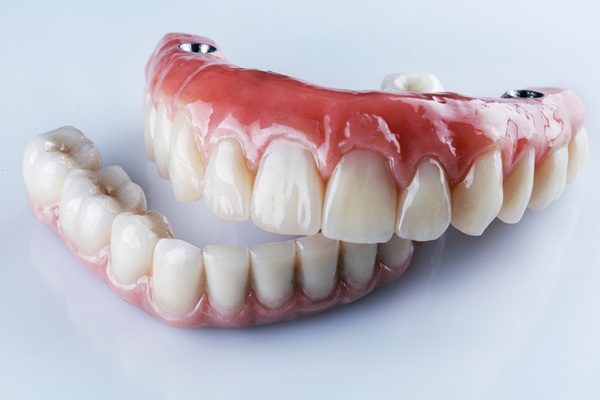Tell Your Dentist About Prescriptions Marietta, GA
Although prescription medications each carry their own set of side effects, many affect oral health and dental treatment. Patients who are undergoing medical treatment or have ongoing conditions requiring medication may not be open with their dentist about the prescriptions they are taking. Despite the risks of ineligibility for certain dental treatments, the dentist must be aware of medications taken to best care for the patient's oral health concerns.
Patients who build a strong rapport with their dentist increase the likelihood of proper treatment, preventative treatment, and altering medications to suit oral needs. At the same time, they are aware of the risks that medical and oral medications have when combined as well as procedures that put them at a higher risk of other complications. After discussing medical history and prescribed medications with a complete health dentist, a patient can outweigh the risks and rewards and come to a sound conclusion.
Complete health dentistry information is available at Happy Dental and Orthodontics in Marietta and the surrounding area. We can discuss the importance of building rapport and effective communication with your primary dental provider. Call us at (770) 200-4034 to schedule a consultation appointment to go over prescriptions that may affect your dental treatment eligibility.
Heart Conditions
A primary dental provider should be aware of all conditions, medications, and prior treatments of their patients, especially those for more serious problems, such as heart disease. According to The Academy of General Dentistry, "the most common cause of drug-related interactions is the doctor's lack of information about your medical history." It is important to relay all medical conditions, medical history, medications, supplements, vitamins, allergies, and any adverse reactions that result from medications or treatments.
Despite oral hygiene's positive effect on the heart, patients with heart conditions may be ineligible for certain dental procedures. Invasive dental procedures, such as periodontal treatment, may increase the risk of heart attacks and strokes. Some procedures boost inflammation in the body as it responds to bacteria entering the bloodstream after surgery. If the treatment is more detrimental than the condition itself and poses the risk of ineligibility, then a complete health dentist can weigh the circumstances and offer alternatives.
“Despite oral hygiene’s positive effect on the heart, patients with heart conditions may be ineligible for certain dental procedures.”
Medications That Limit Treatments
Among the most common medications that can prevent dental treatment is for high blood pressure. A Hindawi medical research journal states, "it is generally recommended that emergency dental procedures be avoided in patients with a blood pressure of greater than 180/110 mmHg." Due to the high prevalence of disease and medication use for hypertension, complete health dentists are aware of antihypertensive medications' oral side effects.
Complete health dentists understand the risks of dual-drug interactions of certain medical prescriptions with medications commonly used during dental visits. The term medically-compromised refers to patients with "impaired health statuses, such as pregnancy, or patients with systemic diseases like ischemic heart disease, congenital heart disease, liver disease, renal disease, asthma, patients with immunodeficiency and patients with altered immune status." Patients who do not disclose medical conditions and medications with their dentist while undergoing dental treatment may risk worsening their medical status or even result in fatality.
“Due to the high prevalence of disease and medication use for hypertension, complete health dentists are aware of the oral side effects of antihypertensive medications.”
Dental Prescriptions that Would Conflict with Other Medications
After a patient's dental evaluation, their dentist may want to prescribe a medication, particularly if a patient is experiencing pain or an infection. Every drug carries a unique set of side effects and the potential to interact with other medicines. Thus, it is crucial for patients to keep their dentist informed about all medications they are taking, including supplements. This allows the dentist to screen for medication interactions.
Medicines that dentists commonly prescribe include antibiotics, antifungals, anti-inflammatories, and narcotic analgesics. During a procedure, a complete health dentist may also provide an anesthetic medication or a medication to help with anxiety, so they must know what is in a patient's system that could potentially cause harm or an undue reaction.
“Medicines that dentists commonly prescribe include antibiotics, antifungals, anti-inflammatories, and narcotic analgesics.”
Check out what others are saying about our dental services on Yelp: Tell Your Dentist About Prescriptions in Marietta, GA
Altering Treatment Based on Medications
Many health conditions require medications that must be taken and pose fatal risks if a patient stops taking them. Complete health dentists have extensive background and education regarding systemic health conditions requiring medications and their adverse effects when coupled with oral medications. They can adjust dosages, prescribe alternatives, and alter dental treatments to fulfill their patient's needs.
It may be necessary to alter non-invasive dental treatments for patients with pre-existing medical conditions or patients taking certain medications. It is also possible to postpone or alter invasive treatments and surgeries if medications pose risks or interfere with a patient's medical condition. Complete health dentists can initiate, modify, and alter treatment based on medical history with the discretion of the patient's primary care provider and prescribe medications that sync with those the patient is already taking.
“It may be necessary to alter non-invasive dental treatments for patients with pre-existing medical conditions or patients taking certain medications.”
Questions Answered on This Page
Q. Why are patients with heart conditions ineligible for many dental procedures?
Q. Which medications can prevent dental treatments?
Q. What kinds of medications do dentists prescribe?
People Also Ask
Q. How do preexisting conditions affect dental care?
Q. Am I at high risk for developing oral cancer?
Q. How can I find out if my employer's plan covers dental treatments?
Q. What are some of the reasons one might need a tooth extraction?
Frequently Asked Questions About Opening Up to Your Dentist
Q. How do dentists treat patients with heart valve conditions?
A. First, your dentist will ask questions about the nature of the heart condition, including any medications and procedural history. After reviewing this information and potentially coordinating with your medical doctor, the dentist may prescribe you an antibiotic before the procedure to lower their risk of developing a heart infection known as infective endocarditis.
Q. Will a dentist prescribe an antibiotic if I have had a joint replacement?
A. Most likely, no. According to the American Dental Association, the most current guidelines recommend against prophylactic antibiotics (antibiotics taken before a procedure) in patients who have prosthetic joint implants.
Q. What other conditions or prescriptions are important for my dentist to know about?
A. In general, your dentist should know about all of your prescription medications because even if a prescription may not seem related to their oral health, it may interact with medications used by a dentist. For example, as reviewed previously, cardiac medications, anticoagulants, and medications for osteoporosis can affect their dental treatments. Additionally, their dentist will want to know about any history of organ transplants, biological implants, or chemotherapy.
Q. Can taking or not taking my prescription medications affect my mouth?
A. Some patients are, in fact, taking medications that may be negatively impacting their mouth. At the same time, not taking prescribed medications can also affect your oral health. Do not stop taking prescription medicines on your own discretion. In most cases, a physician and dentist will tell you what medication you are being prescribed and its benefits, as well as the risks it carries. Patients who feel their oral health is being affected should communicate that with both their dentist and doctor to try and alter the medication.
Q. Are there alternative dental treatments for patients currently taking interactive medications?
A. Almost all dental treatments have alternative treatments that can be done for patients with certain medical conditions or who are taking certain medications. If the particular treatment does not have alternatives, we may alter the treatment or, when absolutely necessary, speak to the patient's doctor about altering the medication or stopping it for a short period, if possible. Since each treatment differs and has differing levels of necessity, we will discuss the available options with the patients.
Dental Terminology
Learn More Today
If you are interested in better understanding complete health dentistry and why patient-provider rapport is important, call us at 770-200-4034 to set up an appointment.
Helpful Related Links
- American Dental Association (ADA). Glossary of Dental Clinical Terms. 2024
About our business and website security
- Happy Dental and Orthodontics was established in 2021.
- We accept the following payment methods: American Express, Cash, Discover, MasterCard, and Visa
- We serve patients from the following counties: Cobb County and Fulton County
- We serve patients from the following cities: Marietta, Smyrna, Sandy Springs, Atlanta, Kennesaw, Roswell, Acworth, East Cobb, Alpharetta and Fair Oaks
- National Provider Identifier Database (1407403652). View NPI Registry Information
- Norton Safe Web. View Details
- Trend Micro Site Safety Center. View Details
Back to top of Tell Your Dentist About Prescriptions










